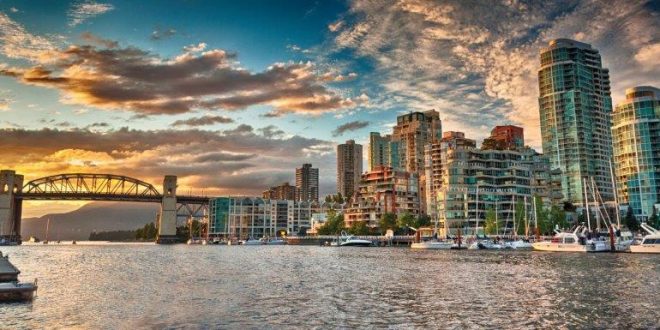By Surbhi Gogia
What is happening to the real estate market of Metro Vancouver and Fraser Valley? It is a million or quite literally more than a million dollar question that is bothering everyone from realtors to home buyers to sellers or even the foreign investors? Those who have their money invested in the market are trying to find out if the housing bubble will burst soon? Those who want to buy are curious to know when will there be a halt in the soaring prices of the properties?
If we go by the opinion of Realtors, as expected, they want to keep the hopes high for the market and would never like to comment or even think that the real estate market will slow down and this dream bubble would burst. On the other hand, those who want the market and the rising prices to rest, are optimistic enough that the Bank of Canada’s increased lending rates and new provincial government’s efforts to solve housing affordability, would cool down this market.
Thomas DAVIDOFF, associate professor and Director at UBC’s Centre for Economics and Real Estate, says a lot of people think they know exactly where the market is going but it is hard to predict since you have to collect viewpoints of all the participants in the market to talk about prices. “It is an awful lot of wisdom. So most of the economist will be reluctant to forecast anything except a good guess that prices will not be too far from where they are now — which is where the market wants them to be.” He says it is hard to know more than what the market does.

He is of the view that two main factors that might slow down the current market activity are interest rates and foreign demand. According to him interest rates are still low. “But those interest rates may not be around forever. Banks around the world are talking about raising interest rates.” He says it is also hard to predict where the foreign demand will go but given the tax environment and new government coming in, there is a possibility that it will cool down.
When it comes to prices, if the market cools down, will the prices of real estate still be rising or there will be a bubble burst. He says, “Vancouver is a great place where lots of people from around the world want to live and since it is hard to build new homes here, we could continue to see prices stabilized moderating growth.”
So does it mean there is no reason to be concerned about a bubble burst? “I would not go that far. I think it is possible. If people saw rise in prices and they are convinced that prices can never fall and that it is sure thing to bed in Vancouver’s real estate and part of that psychology is driving prices further, then obviously things can go wrong. If everybody is buying on the believe that things will always go the right way, eventually you get too many buildings and people start changing their mind. Prices will collapse. That is a possible scenario I would not rule that out, but it is not a likely scenario.”
But to say that prices are going to fall down 50%in the next year that is pretty unlikely. “Usually before you see a collapse in prices, you see a collapse in sales volume. We certainly have seen single family home sales weaken, but condos are still selling very easily,” Davidoff adds.
Even the recent sales number from Real Estate Boards of both Fraser Valley and Greater Vancouver, point towards an upward trend where there was a definite rise in residential properties sales in August 2017 as compared to August 2016 — 10 percent in Fraser Valley and 22.3 percent in Greater Vancouver. But the demand for attached housing (condominium and townhouses) pushed the sales as compared to single family detached housing. “Conditions in our detached home market are distinct today from the dynamic in our condominium and townhome markets,” Jill Oudil, REBGV president said. “Detached homes have entered a balanced market. This means there’s less upward pressure on prices and that buyers have more selection to choose from and more time to make their decisions.” (For more in depth numbers see Box)
According to the Real Estate Board of Fraser Valley, of the total sales processed 470 were townhouses and 548 were apartments, together representing 54% of market activity in August. “It’s not surprising to see demand like this still so late into the summer; the Fraser Valley has never been a better place to live than it is now,” said Board President Gopal Sahota. “Our communities are thriving, and there are still affordable options throughout our region. Also, it doesn’t hurt that removing the bridge tolls gives us even greater access to the Lower Mainland.”
Local realtors sees nothing but price increases in Vancouver’s near future, even as sales in the city’s luxury segment have dropped. Some blame the drop in single family home sales on foreign buyers tax. But Davidoff feels it is hard to pin down a reason. ” Sales were slowing down for single family home even before this tax came in.” Affordability is one of the major issues here. Most locals don’t have the income to support single family homes particularly in Vancouver. May be in Fraser Valley it is still possible but to buy in Metro Vancouver you need to have a huge family income and lot of wealth.”
Even a recent housing affordability report by RBC pointed that the least-affordable place to purchase a home remains the Vancouver area. The Vancouver area was the least affordable in the latest quarter ended June 30, 2017 at 80.7 per cent, down 2.4 per cent year-on-year. The Toronto area was second-highest at 75.4 per cent, marking an increase of 12.7 per cent. Victoria came in third at 58.6 per cent, with a year-on-year increase of 7.3 per cent. Across Canada, RBC’s housing affordability measure hit 46.7 per cent in the latest quarter, a level not seen since the end of 1990 and an increase of 3.7 per cent from a year earlier.
So what is it that made Vancouver so unaffordable on first place? Was it the foreign demand from Chinese buyers or some other unknown factor? Davidoff feels that it is easy to blame influx of money from China to have pushed the sales and prices but we read between the lines we would see that demand in general to live in Vancouver was on the rise. “The only problem with blaming China and foreign demand that should not really be impacting the rental market. We don’t have a great data going back but there have been years where prices have risen without rental prices increasing. But in 2016, rent started to rise as well. There seem to be almost 10 percent rental growth.”
 Desi Today Magazine
Desi Today Magazine




